We have always been fascinated by the Basque people, not just for their unique soulful cuisine, but also for the fact that no one really knows for sure where they come from or even where their language originates. Whenever folks go looking for the Basque origins, it turns out they were right there in their Basque Country homeland in the Pyrenees mountains all along, bordering both Spain and France, long before the French or the Spanish even existed.
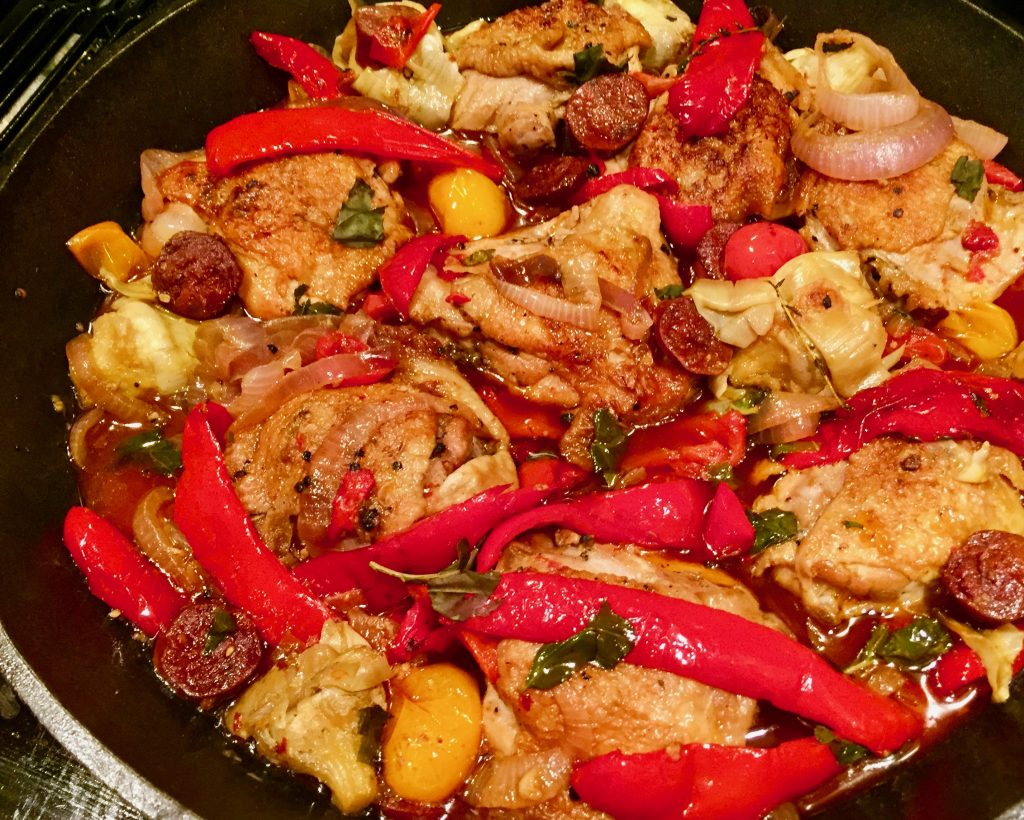
And their language is far older and not related in linguistic roots to any other in Europe. And DNA studies done in the last few years prove they are not related to any other peoples of Europe. They are unique and mysterious. They may very well have been in the same place they are now for not just thousands of years… but possibly tens of thousands of years. Their origins go back farther than the written word, farther than any historical artifacts or documents. Their oral history is all that we know about them. In other words, they may have literally evolved to their modern selves from the first humans who settled in that mountainous area when mankind first populated Europe. We find that possibility mind boggling.
The purity and uniqueness of the Basque culture reveals itself in the simplicity of their cuisine. Over the vast distance of the time they have lived there, certain basic ingredients have become just as specific as they are. The Pyrenees mountains in Basque Country have not only protected them from the outside world, they have also greatly influenced the Basque cuisine. The Pyrenees mountains shaped and united the Basque people, both their culture and their cooking… with the sea on one side providing an abundance of insanely high quality fish and seafood… and the Ebro Valley on the other side, with their unique cured meats and fresh free ranging pork and lamb, and explosively tasty vegetables. And on both sides of the mountains, there is a 400 year old passionate love for salt cod, first acquired when they were the masters of the Atlantic Ocean, beginning as early as the 1500s.
But the one ingredient I most love within the Basque cuisine are their unique peppers… and our favorite one of all is the Piquillo, which they call “red gold”. They are from the Lodosa Navarra region of Spain, and are wood-fire roasted and smoky, with a vibrant crimson red color. They have no heat but rather have a wonderful sweet buttery texture. We like to stuff them with tuna or ricotta, and sometimes sheep or goat cheese, or we simply saute them with smoky chorizo and chicken as we do here in this signature and very traditional feast. Please make an effort to find them (we order them on Amazon, Roland brand), since there is simply no substitute for the Piquillo peppers… like the Basque themselves, they are unique and simply amazing in all of human history.
Ingredients
8 chicken thighs, (preferably air chilled and free range, in an attempt to achieve the high quality of the Basque chicken)
4 oz Spanish Picante Chorizo, sliced into thick coins (we use Palacios, available on Amazon), or any smoked meats will be good, but remember to add 1 more teaspoon paprika if you don’t use authentic Spanish chorizo
6 whole Piquillo peppers (we buy cans on Amazon from Roland) or 2 large red bell peppers, cut fairly wide, about an inch
15 cherry tomatoes, (red and yellow if possible, as if you just returned from a farmers market in Basque Country)
10 to 12 artichoke hearts, depending on size (available in cans or jars, in water, not oil)
2 medium red onions, sliced
1 cup Marsala or Sherry (a crucial flavor component)
6 large garlic cloves, sliced not crushed
4 tablespoons olive oil (we like very high quality virgin olive oil with this feast for it’s deeply rich flavor)
1 teaspoon crushed hot chilies
2 teaspoons smoked Spanish paprika
6 sprigs thyme
1 teaspoon salt (half for the chicken, half for the simmer sauce)
1 teaspoon black pepper
1/2 cup Italian parsley or basil, for garnish
Cooking
In a 14 inch pan (cast iron if possible), slowly and gently fry the chorizo on medium low until they are just turning brown and have released some fats. Remove the chorizo and set aside, leaving the smoky paprika unfused fats.
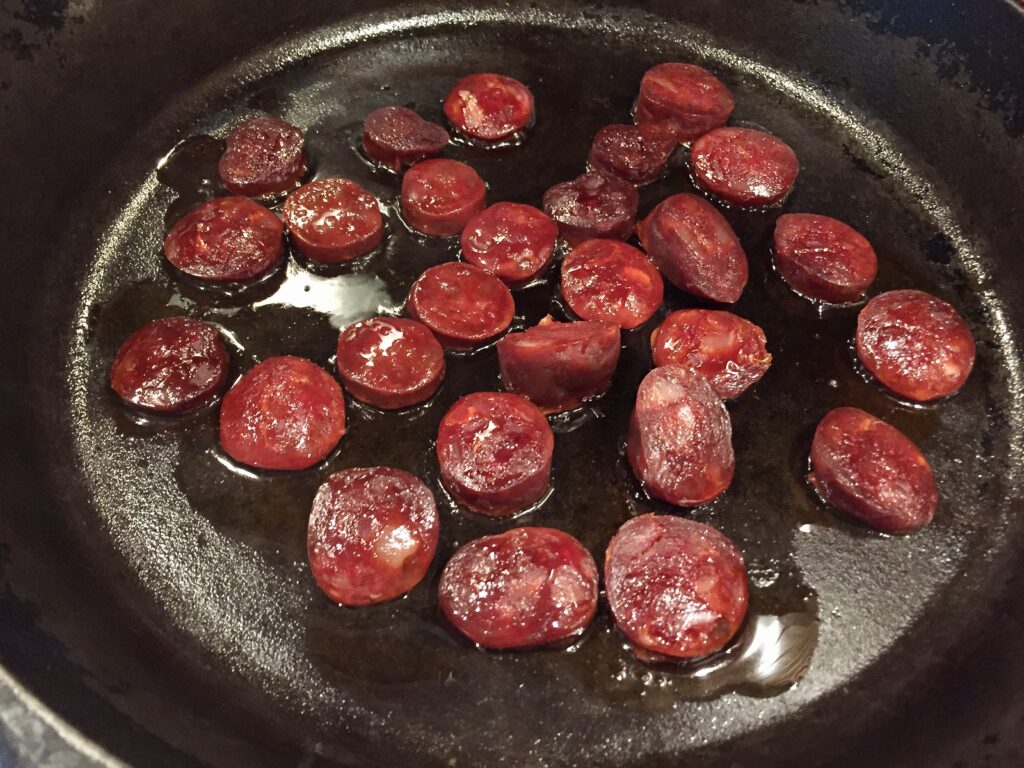
Add the olive oil and garlic, and using the same low to medium heat, saute the garlic until aromatic, and add the chicken. Cook the salted chicken and fry on medium heat until browned on both sides, 15 to 20 minutes. Remove the chicken and set aside, covered.
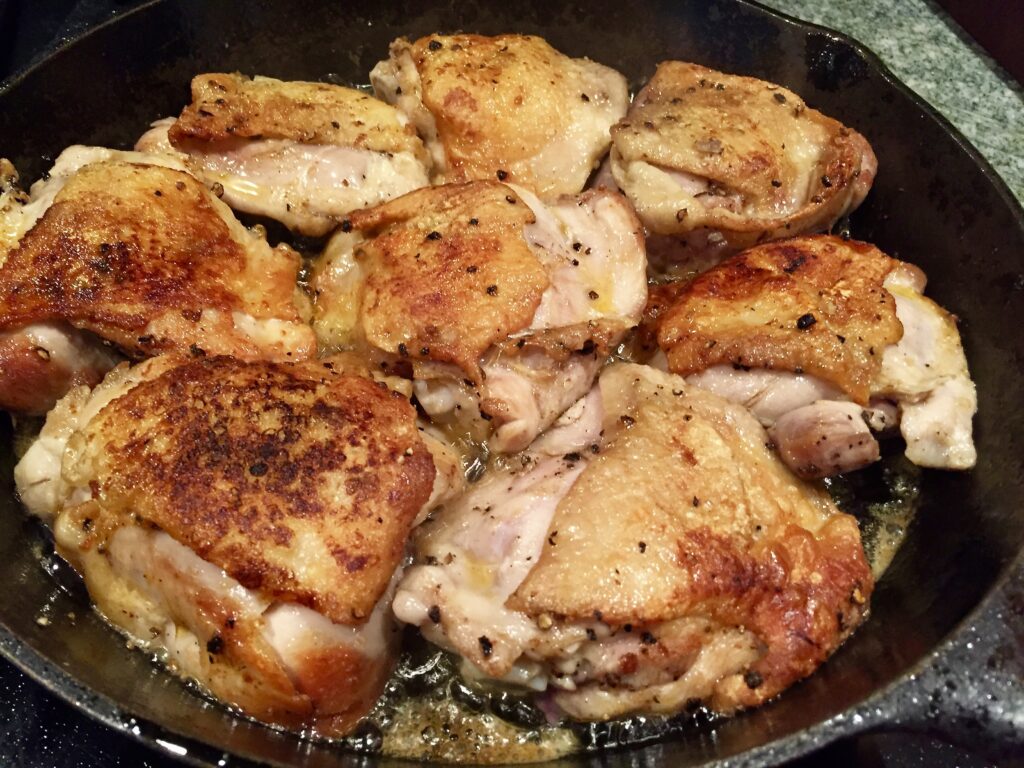
Add the red onions, peppers, 1/2 the salt, black pepper and thyme, cook until the peppers are just starting to brown. Add the sherry first, allow it to simmer, and then add the tomatoes, paprika and crushed red chilies. Simmer until aromatic, about 2 minutes.
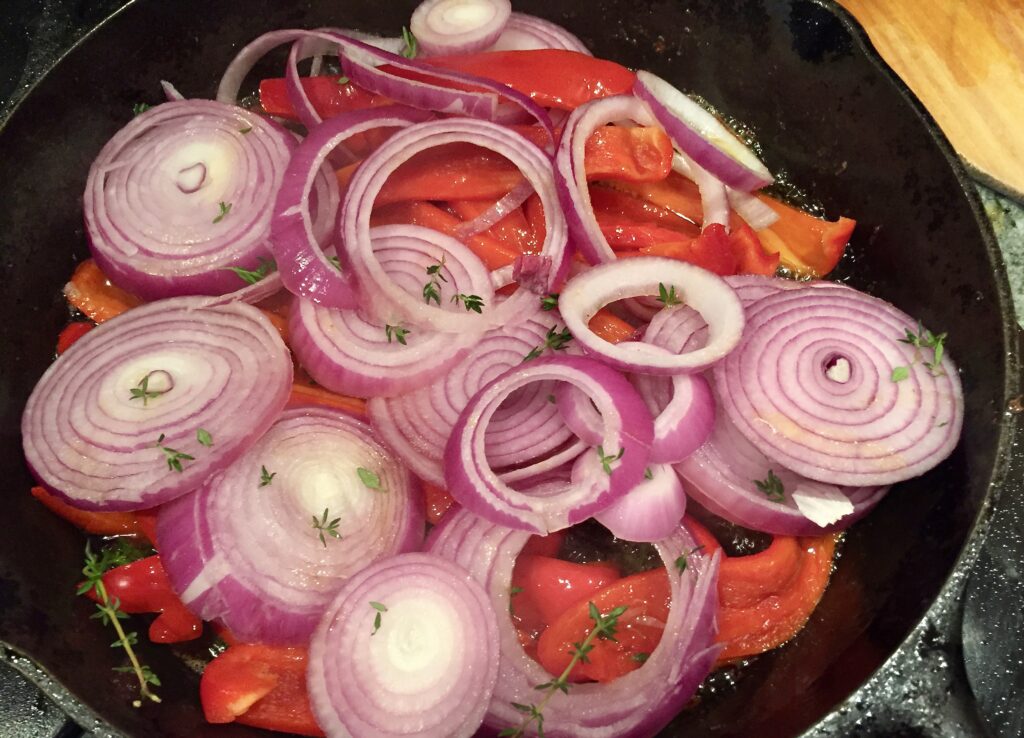
Add back the chorizo and chicken, cover and simmer on low to medium heat until the chicken is fully cooked, about 20 minutes. Add the artichoke hearts and cook without the cover, turning the chicken, until all ingredients are married and thickened, about 12 minutes.
Serve with crusty bread… with the parsley or basil on top.
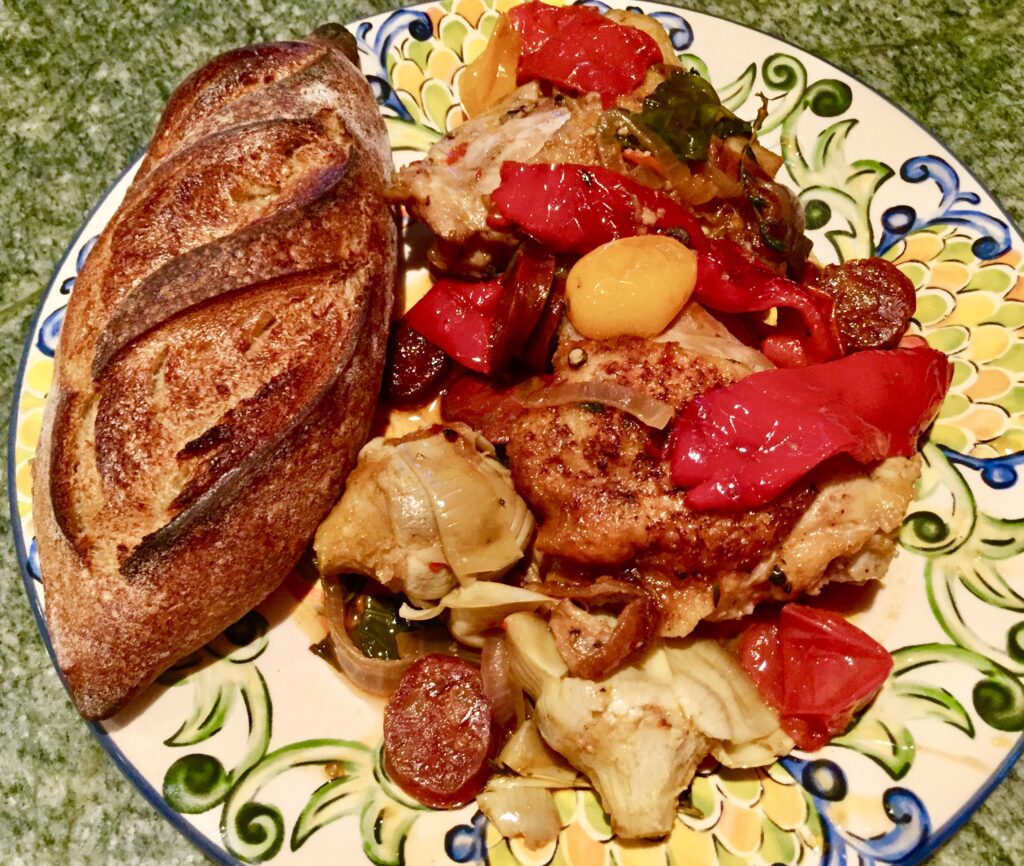
Basque-Mexican Diaspora Braised Chicken
Political repression and war in the 1800s caused a huge diaspora of the Basque people throughout the Americas. Many Basque sheepherders found a home in Nevada and Idaho, but the largest diaspora was to Mexico, where the cuisine was preserved as a Basque heritage… and yet a fusion was embraced by the local ingredients and cuisine of Mexico. The feast above can be transformed by adding the following ingredients when the artichokes are added.
12 oz tomatillo sauce (or already reduced thick tomatillo salsa)
1 12 ounce can black beans
2 serrano peppers, sliced